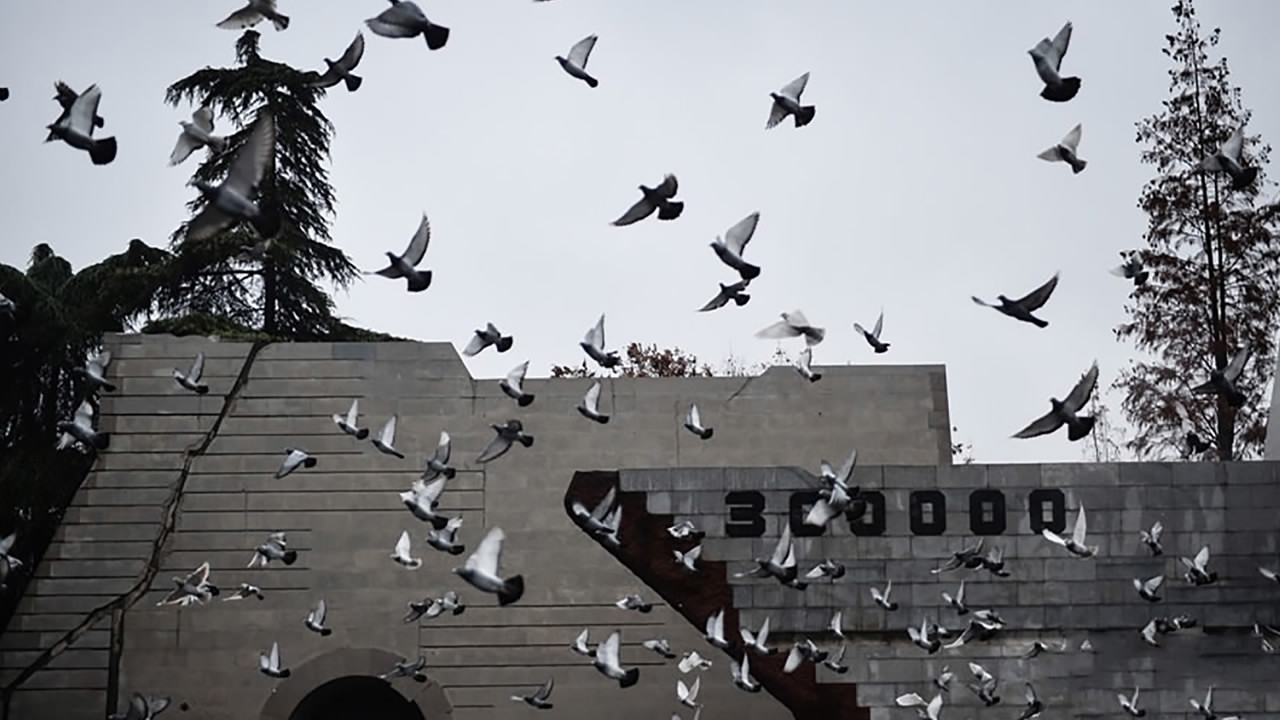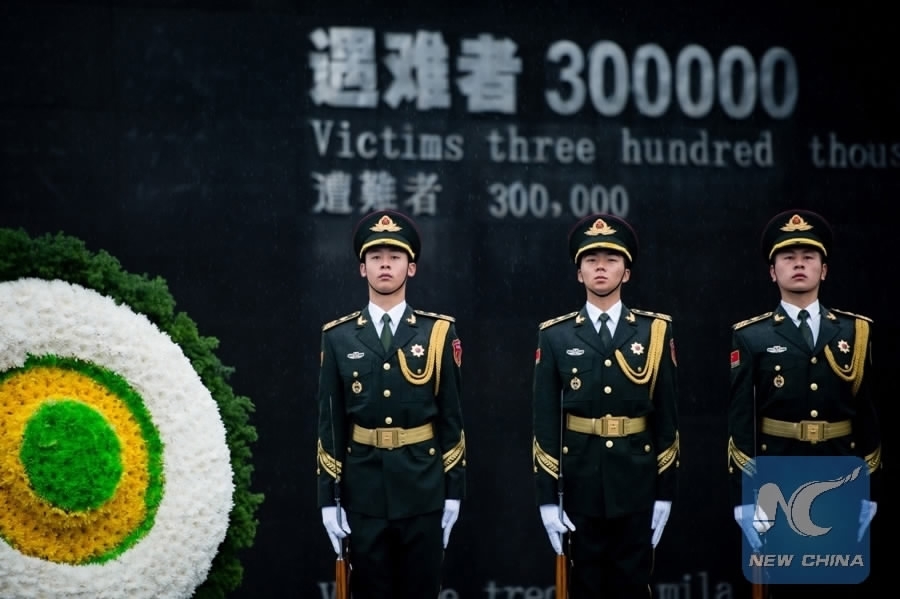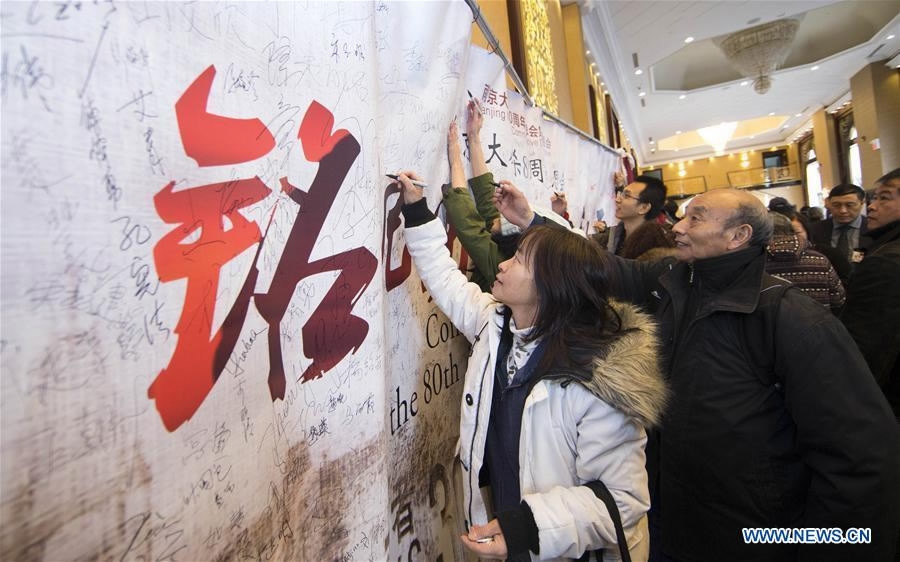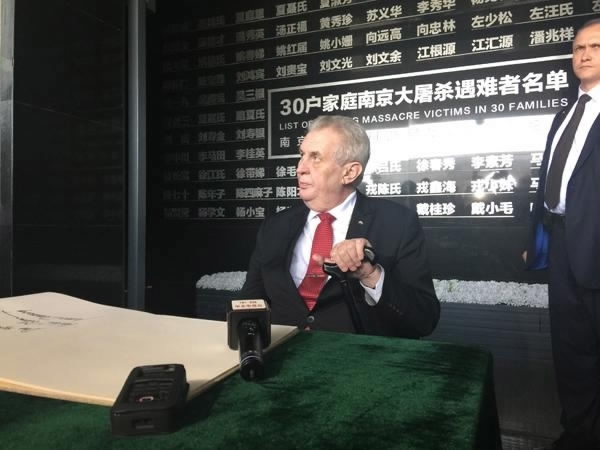
Opinions
17:31, 11-Dec-2017
Understanding Perceptions of the Modern Histories in East Asia
Guest commentary by Shi Yinhong

The critical components of the modern history of East Asia may be reduced to two primary factors: first, the history of a cruel and high-handed Japanese aggression, and the colonization during the half century from the Sino-Japanese War in 1894 to the end of World War II in 1945; second, the rise and development of modern nationalism in almost all East Asian countries except Japan, for which the national experiences of opposing and resisting the Japanese aggression and colonization played a decisive part.
In regards to the history with the Japanese, the present gravest problem is that the majority of the Japanese people are obviously inclining to somewhat forget or at least dilute it, and in case of the rightists even reject it as false in large degree, while this kind of behavior itself has strongly deepened the sense on the part of the Chinese and the Republic of Korea's (ROK) people to remember firmly and talk almost constantly this history.

A state memorial ceremony for China's National Memorial Day for Nanjing Massacre Victims at the memorial hall for the massacre victims took place on Dec. 13, 2016, in Nanjing, east China's Jiangsu Province. /Xinhua Photo
A state memorial ceremony for China's National Memorial Day for Nanjing Massacre Victims at the memorial hall for the massacre victims took place on Dec. 13, 2016, in Nanjing, east China's Jiangsu Province. /Xinhua Photo
In regards to the development of the nations, the different from the modern historical experience of European peoples (who after the huge catastrophes of two World Wars finally concluded that the extreme “patriotic” and exclusive nationalism is something should be refused now and in the future), and what the two World Wars brought to East Asia, except that of Japan, is just modern nationalism. The emergence of those people as modern nation-states all occurred in and even resulted from these Great Wars. It can be said that accompanying with the emergence, development, and rise as powers of these modern nation-states, nationalism held by different East Asian countries is just prosperous now. Revealing the elements of mutual friction or even conflict among them prominent at times. Even the Japanese nationalism that brought catastrophe to the Japanese nation has also begun to raise its head again, due to the agitation of the Japanese rightists and the effects of other internal and external factors, causing various worries in East Asian countries, particularly in China and the ROK.
Such histories and the perceptions of them demonstrated above have left the cooperative security and joint development in East Asia barriers not easily overcome.
To overcome these two factors, it is necessary to proceed with awareness in touch with East Asia’s complicated histories in the modern time.

Visitors sign their names during a Commemorative Day Ceremony for the 80th Anniversary of the Nanjing Massacre in Toronto, Canada, Dec. 9, 2017. More than 1,000 people took part in the ceremony on Saturday. /Xinhua Photo
Visitors sign their names during a Commemorative Day Ceremony for the 80th Anniversary of the Nanjing Massacre in Toronto, Canada, Dec. 9, 2017. More than 1,000 people took part in the ceremony on Saturday. /Xinhua Photo
To moving forward involves “truth” and “reconciliation.” "Truth" meaning to acknowledge and understand the history, not only from a nation’s own point of view but also from that of other nations concerned. An outstanding example is found in the case of Japan, which must view the history of the Japanese aggression, colonization and brutality before the end of World War II, as it happened and the reaction of its victims, facing up to the disastrous outcome of its injustices and endeavoring to learn its lessons. Otherwise, neither East Asia nor Japan will have real tranquility.
As for “reconciliation”, it requires two steps. First, to respect other peoples’ historical memories, images, and national feeling as well as one’s own people’s and, when seemingly irreconcilable differences are found between the two, try one’s best to ease them.
The second step would be to properly treat the complaints and hatred deep roots in history by emphasizing the present and the future according to the overriding principle of sticking to the core (not fringe) historical truth and today’s overriding (not insignificant) national interests. Often it is advisable to leave the resolution of major history disputes to future generations.

Czech President Milos Zeman visits Nanjing Massacre memorial hall in Nanjing, May 15, 2017. /CCTV Photo
Czech President Milos Zeman visits Nanjing Massacre memorial hall in Nanjing, May 15, 2017. /CCTV Photo
How to deal with historical issues in China-Japan relations?
We, the Chinese should not and will not forget the history of the Japanese aggression against China, but we also should seek to move forward. The past is not as important, but preserving and promoting the current vital national interests, the prospect of national security and development is critical to the future.
Except in the case that the Japanese government retrogresses fundamentally from its post-World War II recognition of, and apology for Japan’s modern armed aggression and colonization, the historical issues between China and Japan could be treated strategically, leaving their real settlement on behalf of truth to the future.
(The author is a professor of International Relations, Renmin University of China. The article reflects the author’s opinion, not necessarily the views of CGTN.)

SITEMAP
Copyright © 2018 CGTN. Beijing ICP prepared NO.16065310-3
Copyright © 2018 CGTN. Beijing ICP prepared NO.16065310-3